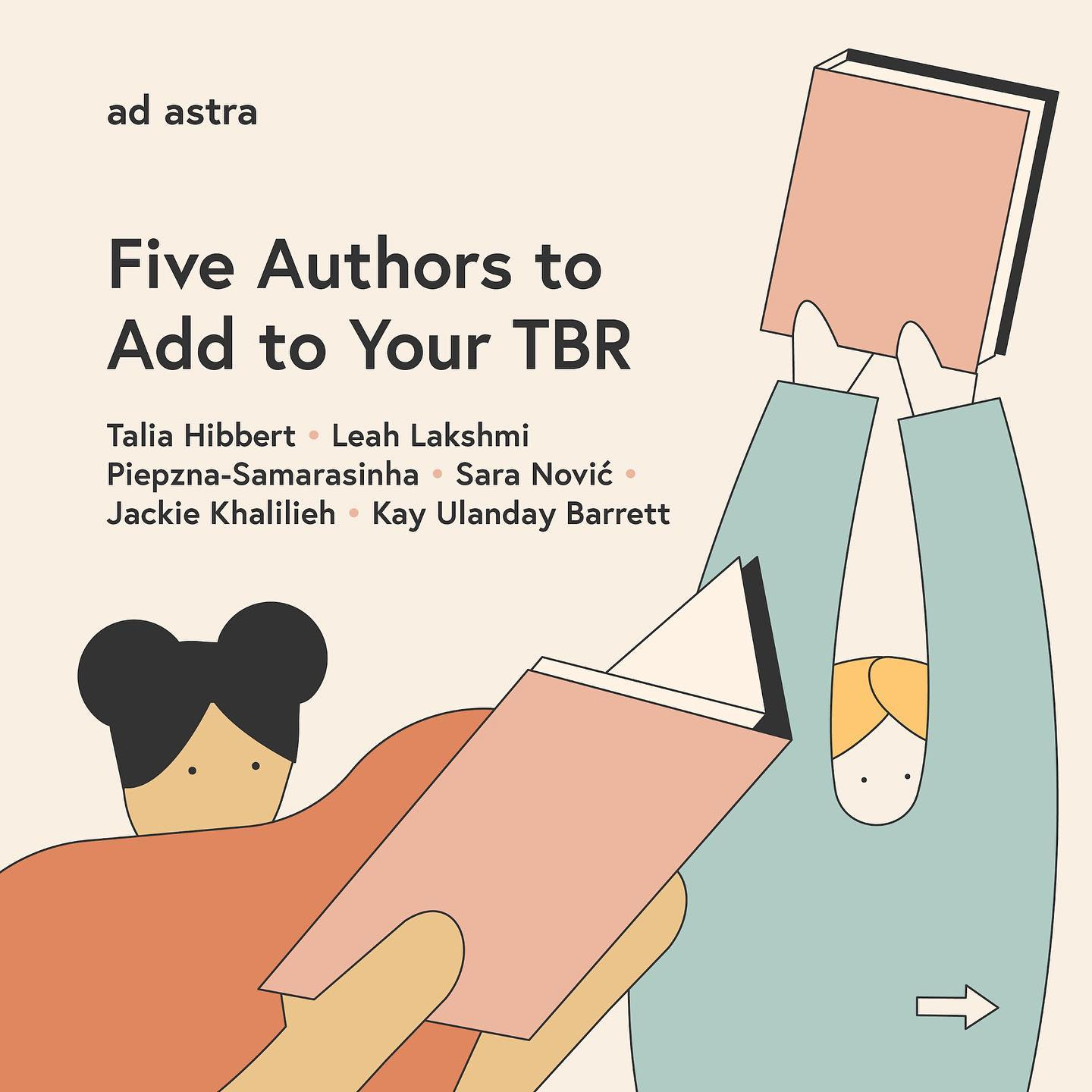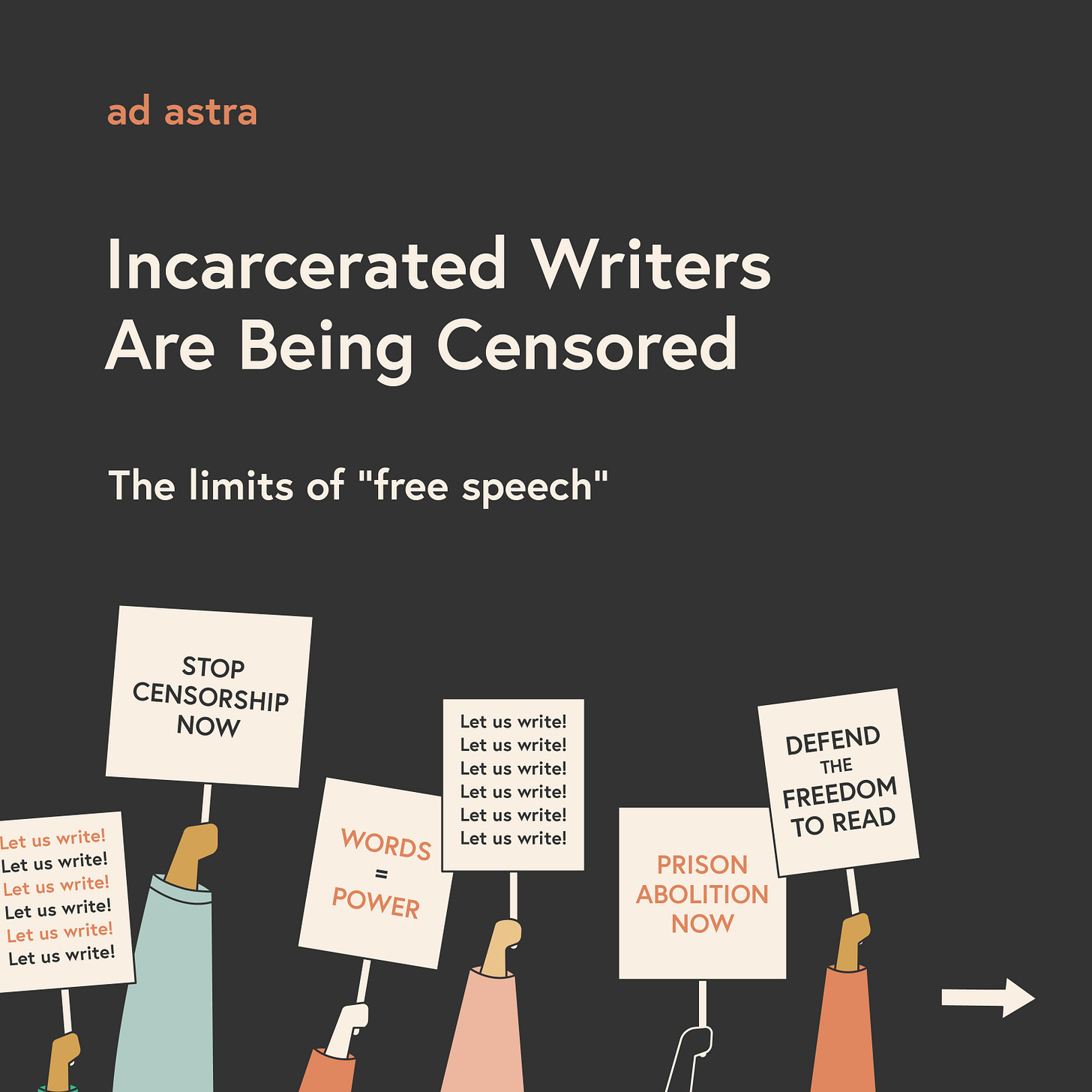Volume XXVIII: Incarceration, Censorship, and Book Bans
And what they can reveal about the state of the U.S.
Introduction
When covering censorship, the majority of media attention tends to focus on schools and libraries across the country, and for good reason. But U.S. prisons also have a long history of restricting access to reading and writing.
[Dear readers: This issue contains discussions of white supremacy and mentions of books that are rooted in racism, antisemitism, transphobia, and more.]
On May 11, 2023, New York’s Department of Corrections and Community Supervision’s Directive 4406 went into effect, restricting—and, in many instances, fully blocking—incarcerated individuals from publishing various forms of creative works and being paid for such work. The order wasn’t publicized, and after New York Focus published a story about the directive on June 6, the directive was revoked one day later.
Though the directive was revoked, its passing comes as little surprise. The U.S. has a long history of censorship, despite the country’s claims of “free speech,” particularly in prisons. In schools and libraries, book bans have been on the rise over the past few years, as well as restrictions to educational content, such as Critical Race Theory, gender studies, and history courses (the most recent being Florida’s whitewashed, extremely harmful changes to curriculum around enslavement). Yet despite ongoing restrictions preventing incarcerated individuals from receiving and publishing written materials, the cases rarely make mainstream news.
In this issue, we’re looking at how restrictions on incarcerated individuals’ free speech and access to literature shows a bigger picture of systemic racism in the U.S.
A Deeper Look
In the 1987 SCOTUS case Turner v. Safley, the Court upheld restrictions on correspondence between incarcerated individuals, claiming “legitimate security concerns.” While the First Amendment does technically protect incarcerated folks from censorship, SCOTUS’ ruling has led to blurred lines, many prisons implementing unnecessary, restrictive policies. New York’s Directive 4406 was extremely vague, raising concerns from organizations including PEN America and The Marshall Project. Like SCOTUS’ ruling, such a directive could open doors to banning anything labeled as creative.
In 2010, the ACLU filed a lawsuit against the Berkeley County Detention Center in Moncks Corner, South Carolina. For several years, the Center had banned access to “most books, magazines, newspapers and other periodicals.” Not only is the censorship of access to materials unconstitutional, it plays a harmful role in transitioning incarcerated individuals back into society, as well as in their rehabilitation efforts (especially as many prisons don’t provide therapy, medication, and/or other mental health tools).
Earlier this year, The Marshall Project released a database showcasing the state of bans after finding over 54,000 banned books across prisons. (Comparatively, PEN America recorded 874 books banned in the second half of 2022 in schools.) As Keri Blakinger notes: “Of the states that sent lists, only seven explicitly banned ‘Mein Kampf,’ and only four banned ‘The Turner Diaries,’ a 1976 extremist text about exterminating people who aren’t White. While Texas prisoners can read Hitler’s manifesto, the state banned pioneering Black journalist Ida B. Wells’ book ‘On Lynchings’ because its examination of racist vigilante mobs used ‘racial slurs.’ Similarly, Louisiana bans texts by Black prison abolitionists, including George Jackson’s ‘Blood in My Eye’ and Mariame Kaba’s ‘We Do This ‘Til We Free Us,’ for being ‘racially inflammatory.’ But it allows ‘Mein Kampf,’ as well as every single book mentioned in the Southern Poverty Law Center’s round-up of racist literature.”
Modern prisons have their roots in white supremacist practices, particularly enslavement. In fact, the Thirteenth Amendment (aka the “abolition of slavery”) directly states:
Neither slavery nor involuntary servitude, except as a punishment for crime whereof the party shall have been duly convicted, shall exist within the United States, or any place subject to their jurisdiction.
(Emphasis added.)
This clause has led directly to the incarceration of Black and Brown individuals at disproportionate rates. According to one study, 38% of the US prison population identifies as Black, despite making up only 13.5% of the U.S. population. By censoring not only reading materials, but access to writing, political leaders are primarily silencing these voices in the attempt to keep oppressive systems in place, just like with book bans in school libraries and classrooms. These bans also restrict citizens from seeing what lies inside prison walls, keep incarcerated numbers up (to meet quotes and receive funding), and limit re-habitual resources.
Ways to Respond
If you visit independent bookstores or your local library, you might notice advertisements for programs that send book donations to prisons across the country. Through such programs, you can purchase or bring a book for donation. As it’s becoming increasingly hard to get books to incarcerated individuals, supporting these programs is important.
Examples of stores that do so include:
Open Books (home to The Prison Book Project)
The Claremont Forum Bookshop (home to The Prison Library Project)
You can also look directly into the programs sending the books, such as:
Other ways to get involved include signing up for writing mentorship programs that benefit incarcerated writers, such as through PEN America or Bold Ink. Furthermore, we can all educate ourselves on the prison abolition movement and read more works by and about incarcerated individuals and examine what “freedom” really means.
Collected Words
We are looking for short (~150 words) writing submissions on any topic that are rooted in and/or guided by an intersectional feminist lens.
Each published writer will receive their choice of one of the following:
$25.00
$25.00 gift card to bookstore of choice
$25.00 donation to organization of choice
Feel free to reach out with any questions and submit your pieces either at the link below or via email, with the subject line Collected Words Submission.
Sunday Funnies
Anyone else? 😘
Final Musings
Often when any future different from what we know is discussed, people demand to know how said future would be possible. Sometimes we know the answer, and sometimes we might not. But like Derecka Purnell says in Becoming Abolitionists, “just because I did not know the answer didn’t mean that one did not exist.”
Whether it’s imagining an anti-ableist future, or an abolitionist one, readers hold power. We can play a huge role in not only raising awareness about critical stories and their importance, but also in ensuring those who need them the most are able to access them.

We’ll be back in a few weeks with a deep dive into a recent read! In the meantime, make sure to check out our free downloads (wallpapers, templates, and more), and our exclusive downloads for newsletter subscribers (with password newsletterdownloads).
If you have any questions, comments, or concerns, don’t hesitate to get in touch via email, the comments below, or Instagram DM.
Xx,
ad astra
*Note: We receive a small commission from any books purchased using our affiliate links.





